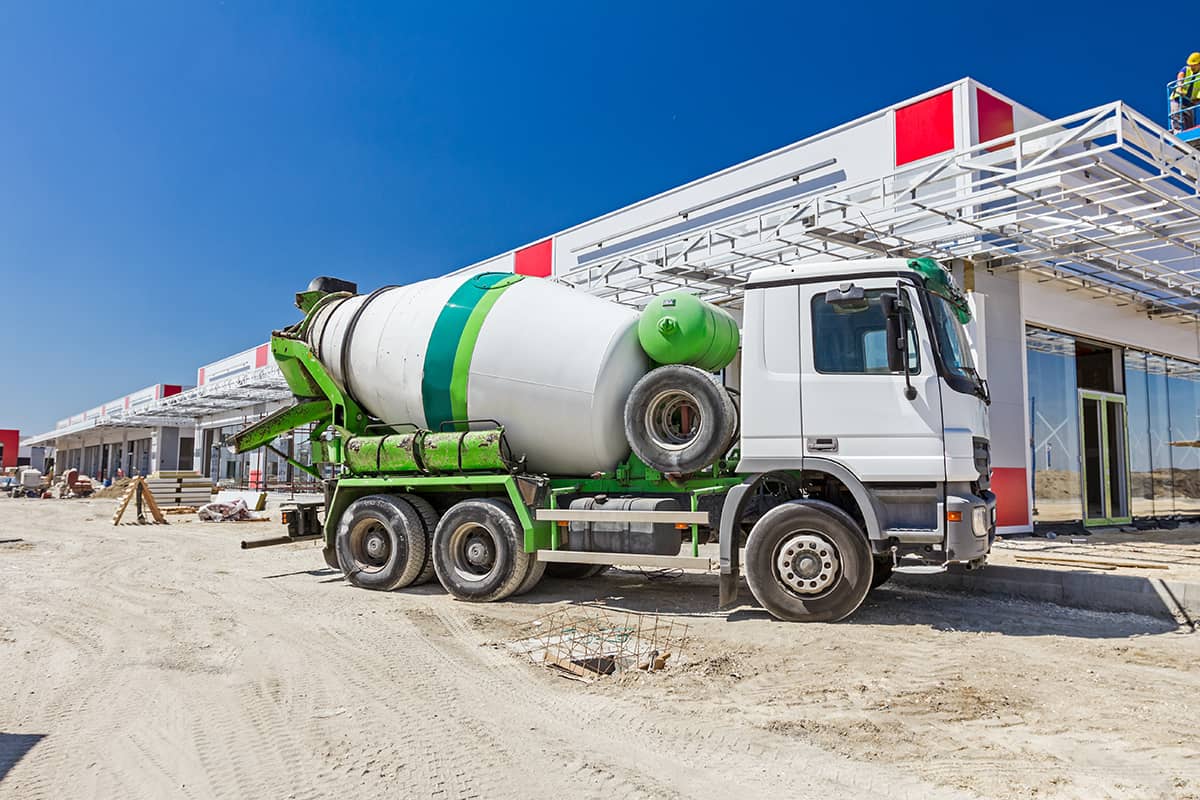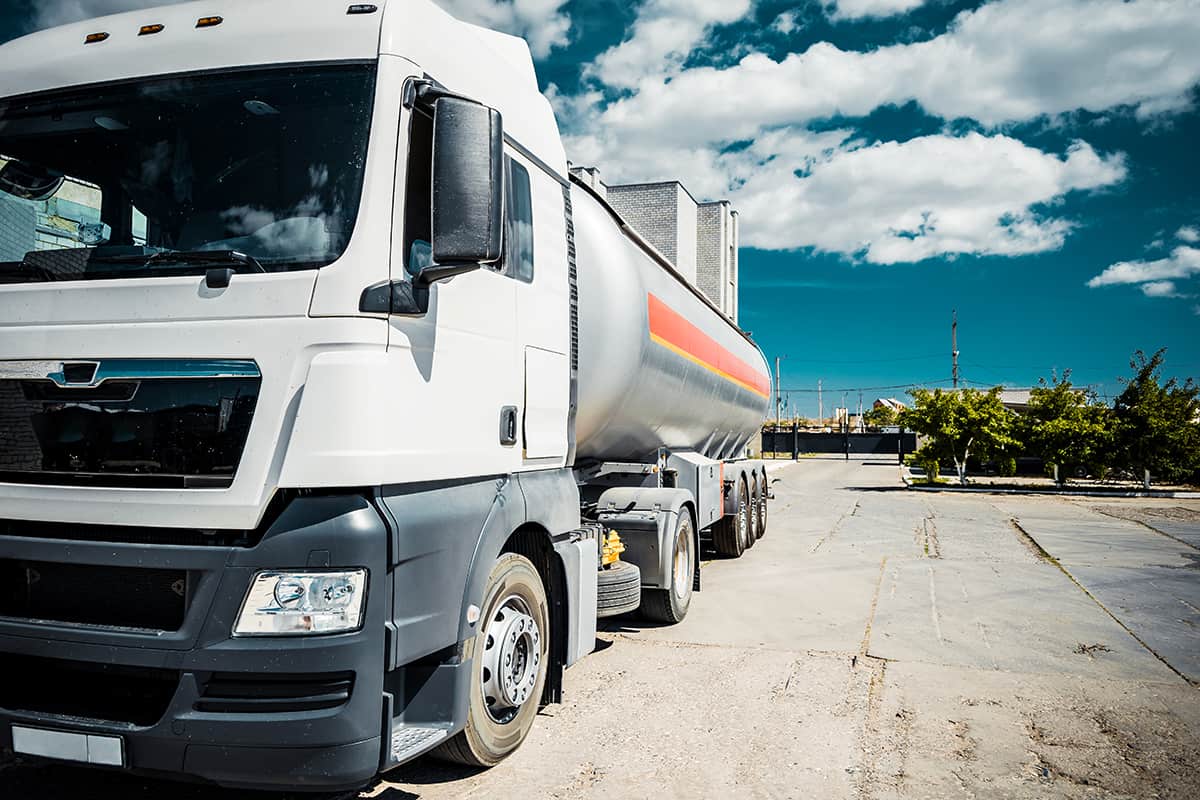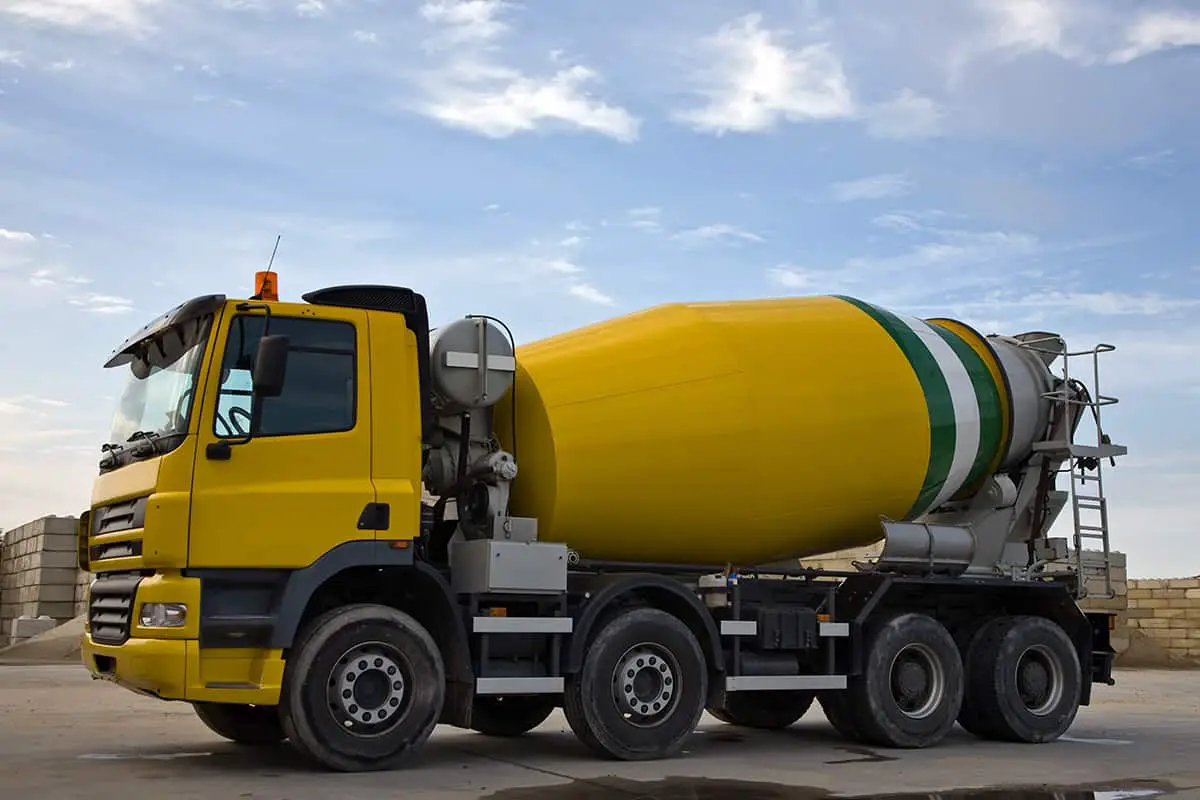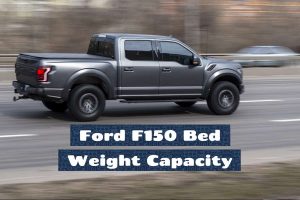The cement truck, the unsung hero of the construction world. With its massive mixer and rugged exterior, it’s the ultimate multitasker, able to lay foundations and create traffic jams all at the same time. But do you know how much cement a single cement truck can carry?
A typical cement truck can hold between 8 and 12 cubic yards of cement. A typical 10-yard cement truck is around 12 feet tall, 10 feet wide, and 35 feet wide. The actual dimensions of a cement truck vary depending on its load capacity.
In this guide, I’ll talk about the various cement truck sizes, how much it costs to rent, and whether you should purchase premade cement or mix it by hand.
Cement Truck Dimensions
Cement trucks, also known as concrete mixer trucks, are indispensable on construction sites because of their ability to transport and mix concrete on the go.
The cylindrical mixer drum on cement trucks spins continuously while the vehicle is in motion. Cement and aggregate materials are mixed evenly by rotating a drum that is mounted on a horizontal axis. As a result, the concrete will be uniform and consistent throughout the batch.
Cement trucks come in a wide range of sizes and shapes, so it’s impossible to give standard dimensions for them. Cement trucks come in a variety of sizes, but here are some typical ones:
- Length: Cement trucks can range in length from about 20 feet for smaller trucks to over 30 feet for larger trucks.
- Width: Cement trucks are typically quite wide, with most trucks measuring around 8 feet in width.
- Height: The height of a cement truck can vary depending on the size of the mixer drum and the type of truck, but most cement trucks are around 13 feet tall.
It’s important to keep in mind that cement trucks come in a wide range of sizes, depending on the model and manufacturer. You should verify with your cement supplier that they have rental options that are suitable for your building project.
How Much Does It Cost to Rent a Cement Truck?

Cement truck rentals typically cost $200-$1,000 per day, but this can vary greatly based on the vehicle’s specifications. The cost of renting a cement truck can vary depending on a number of factors, including:
- Rental Duration: It should be clear that renting a cement truck for a day will be considerably less than renting one for a week. However, the rental company may even offer a price break if you agree to rent a cement truck for a longer period of time, resulting in a lower daily cost.
- Type of cement truck: Larger trucks with more capacity will generally cost more to rent than smaller trucks. This also means spending more on filling a larger cement truck’s drum under its maximum capacity.
- Rental company location: Renting a cement truck in a major city or urban area may be more expensive than renting in a rural area. While a rental company may offer lower prices from another town, you’ll also have to take into account the driving distance.
- Driving distance: Some rental companies may charge additional fees for the distance the truck will be driven, especially if it is a long distance. In addition, there may be a surcharge for driving a cement truck within a limited radius of the rental company’s headquarters. In addition, surpassing the agreed-upon driving distance may result in a penalty fee.
- Additional services: The cost of renting a cement truck may be higher if you need additional services or equipment, such as a driver or special attachments (mixer drums, concrete pumps, placing booms, trowels, concrete cutters, concrete breakers, concrete screeds, and so on).
- Discounts: Some rental companies may offer discounts for longer rental periods. You may also receive a lower daily rate if you are a repeat customer.
Renting a cement truck can be expensive, so it’s best to look around and compare prices from different companies. You should also think about your needs and budget to find the best deal for your project.
How Much Does a Cement Truck Weigh?

Cement trucks are typically quite heavy, with most trucks weighing between 30,000 and 40,000 pounds (including the weight of the cement). The actual weight of a cement truck can vary depending on the size and type of the truck, as well as any additional equipment or attachments that may be installed.
It’s worth remembering that a cement truck’s weight can have major effects on its mobility and efficiency. There are often weight limits on roads and bridges that cement trucks must adhere to, and they might need special permits or licenses to drive.
Before operating a cement truck, one must always ensure that they have the appropriate licenses and permits and that they are aware of the weight restrictions of any roads or bridges they will be passing.
Why Should You Rent a Cement Truck?
The scope and scale of your project, your budget, and the resources at your disposal will all play a role in determining whether you should mix cement by hand or buy it from a cement truck company.
It takes a lot of time and effort to mix cement by hand, and the results may not be as uniform as those from a cement truck. Inaccurate cement-to-water or aggregate-to-cement ratios are just one example of the kinds of mixing errors that can compromise the durability and quality of concrete produced by hand.
On the other hand, especially for larger projects, it may be more practical to buy cement from a company that delivers its product via cement trucks. Trucking companies that specialize in cement have access to more consistent and reliable cement supplies due to their specialized cement-mixing and delivery equipment and personnel. However, for smaller projects, mixing cement by hand is often more cost-effective than buying it from a cement truck company.
The simplest way of determining whether or not you should purchase premixed cement is to figure out how many yards (cubic yards) you need. If that figure is under the minimum amount that the smallest cement truck can carry (around 8 yards), you’ll most likely save more time and money by preparing your own batch of cement.






